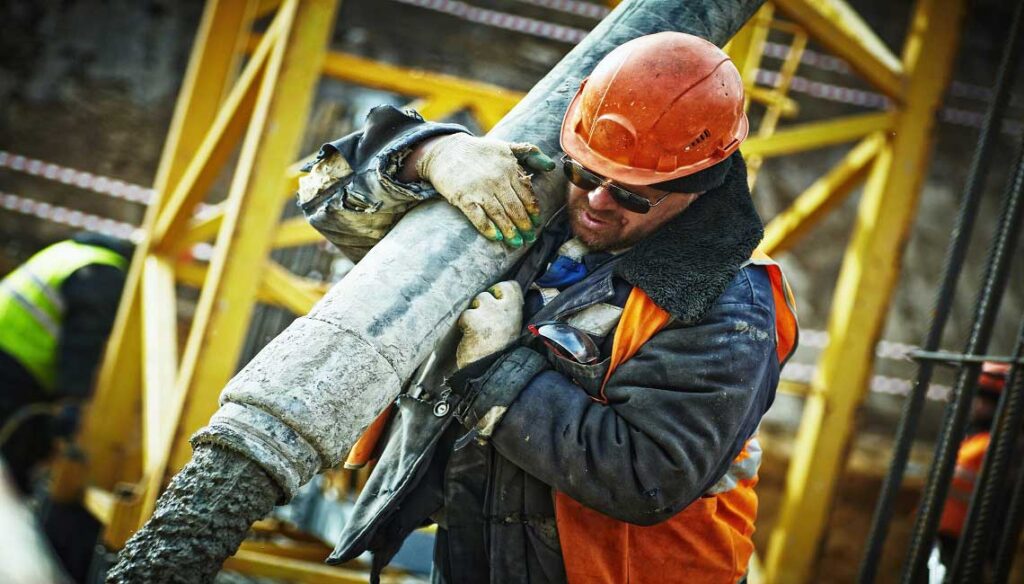
I wish and long, continually to go home and see the day of my return shine. And if any of the gods should wish to annihilate me in the vinous pontoon, I will suffer it with the courage that fills my breast and is so patient for pains, for I have suffered much…
The Odyssey
The title of this installment comes from the film directed by Chris Weitz (2011): A Better Life, which tells the story of a Mexican gardener who works in the United States without legal documents. His life is spent with great effort and risks when pruning tall palm trees in California without adequate safety equipment. “Carlos,” the gardener, has a reason to live: to achieve a promising future for his son.
This is what in real life motivates thousands of people from Latin American countries to make a constant exodus to find work in the North American country and submit themselves to risks and extreme climates to earn in dollars what they would not be able to obtain in their countries.
According to United States government data, after the Covid19 pandemic, more than one million workers are needed to fill employment sources, especially in the construction industry, which is the sector where most people of Latin American origin are employed, both those residing without papers and those with documents.
For people in southern countries, who are unfamiliar with sub-zero winters, construction work is often terribly difficult, and injuries or illnesses are common. Between mixing cement and paint cans or picking up debris, workers must wear hard hats and many layers of clothing to withstand the cold. Many must keep a low profile to avoid being deported, as well as suffer the nostalgia for what has been left behind and hope to send money back to the family that needs it so much.
In the United States, a bricklayer can earn $18 dollars per hour. The pay depends on the company and immigration status. The salary goes according to the position and can be as much as $36,000 dollars per year. There are some areas that require additional training, such as plumbing, carpentry, or electricity. Here, solidarity among countrymen is relevant, as the more experienced ones help the new ones to progress.
Other jobs where Hispanic labor is employed are as forestry workers, which is done outdoors, and where they are subjected to the dangers of the forest and wild animals. It consists of planting, reforesting, clearing debris from trails and campgrounds, as well as spraying trees with insecticides and fungicides, and preventing forest fires. Another example is the work in the Postal Service, which is difficult because it does not stop even in adverse weather, and deliveries are permanent.
The snowplow driver: drives a truck to clear roads, haul away snowy rocks, or unblock streets and exits from homes. In winter, members of the Sanitation Department remove snow and ice from bus stops, crosswalks, and streets after heavy snowfalls.
In the summer, when the heat exceeds 35 degrees Celsius, people engaged in agriculture work outside for long hours. The pay can be lower than in the construction sector. Some people manage to make savings, return to their land, which they can buy, and have a more self-sustaining life.
The United States government, under certain circumstances, offers opportunities to obtain work permits called H2. The process can take from four to six months and must be done with reliable people because it is common to be deceived by supposed lawyers who charge large sums of money without offering results.
According to the testimony of people from Central America, they have been hired by construction companies with temporary or seasonal H2B permits, which is for non-agricultural workers who are engaged in landscaping, hospitality, and construction where local workers are in short supply.
If you are someone who has considered going to work in the U.S. or know someone who needs to, we suggest the following #tools before making or helping to make this big decision:
- Understand that it will not be easy and life is at risk.
- The winter season can cause depression and sap energy for work. Reaching out to the Latino community can motivate, offer advice, and alleviate homesickness.
- Learn basic English for better opportunities
- Have a plan before making any decision and a strategy before seeking the so-called “American dream.” In this link, you can find information related to work visas and forms
At Del Pueblo Funeral Home, we want to express our great admiration to all the people who sought a better life, leaving their countries of origin, their families, and traditions to submit themselves to the great efforts of working under extreme conditions in the United States. Many have stayed and built a new home, preserving the original culture and contributing to the enrichment of the social fabric in the other homeland. With this message of empathy and solidarity, we remind you that we make the most difficult moments easy.
